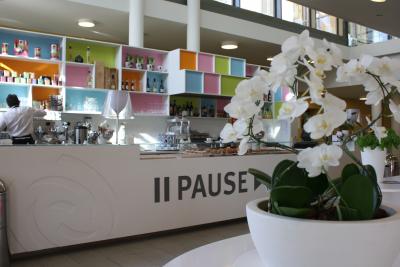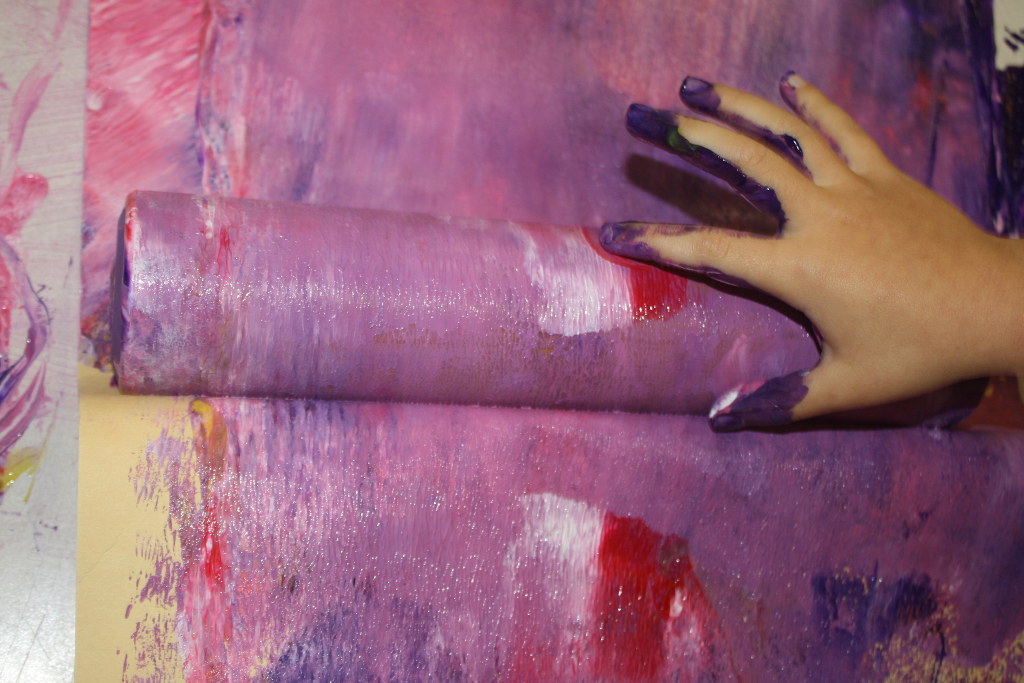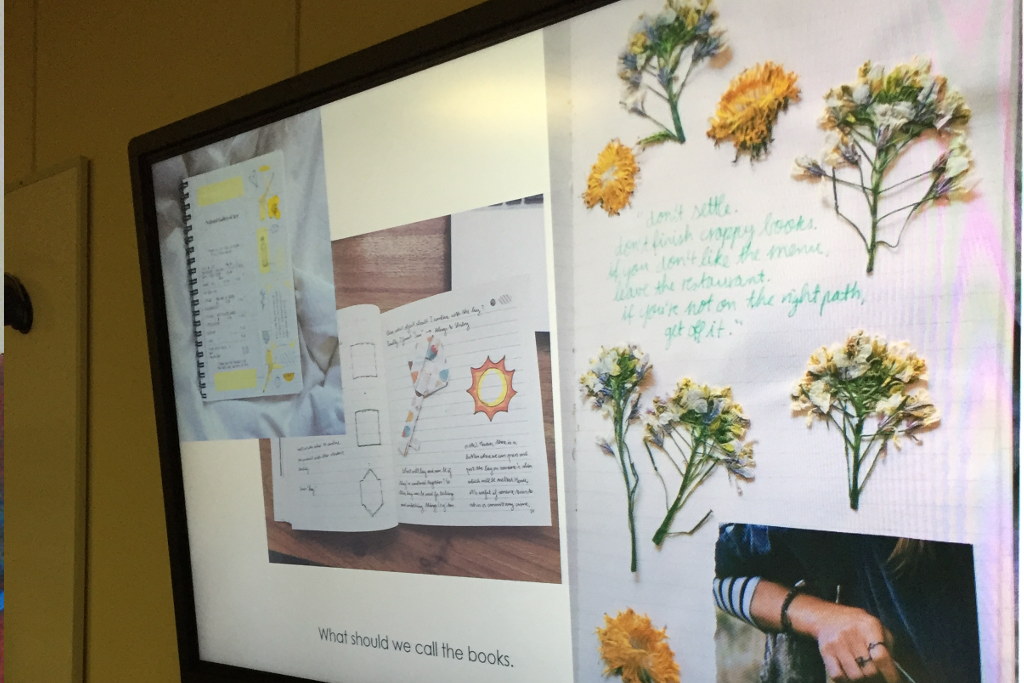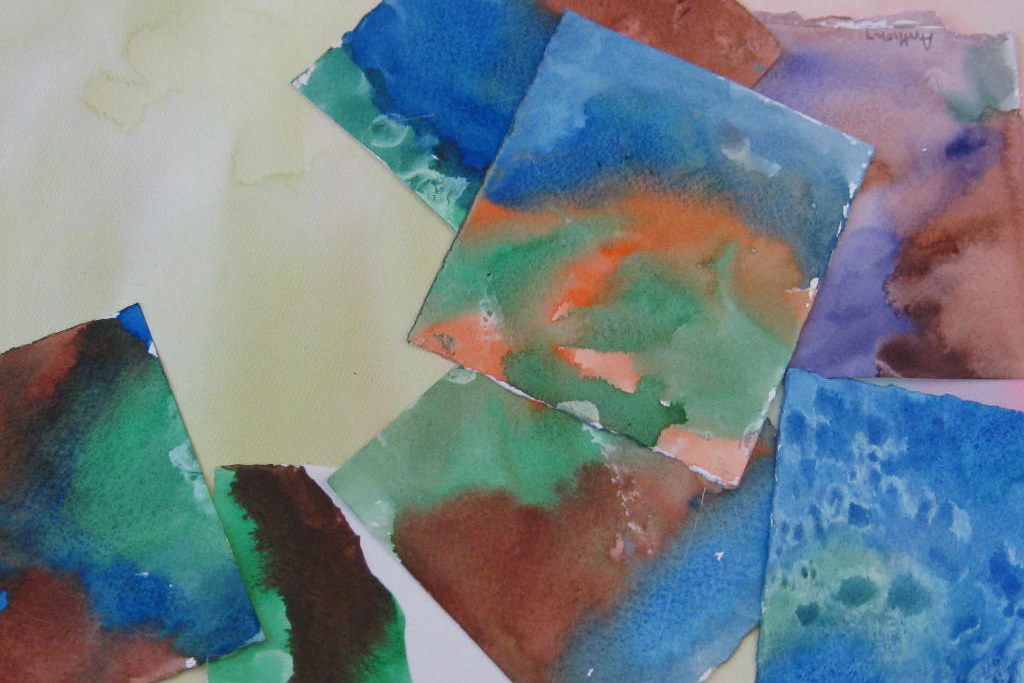
Beginning Reflections on Reggio Emilia study tour
Processing the experience

One would think, after a visit to Reggio Emilia, that anyone would have so much to say about the experience that they would not be able to stop talking about it. Yet, two weeks after returning from Italy, I am so moved by the experience that I am almost overwhelmed into silence. Where to begin? Which part of this study tour to revisit first? My notebook from Reggio is full of writing, and after examining the notes on the flight home, is also full of highlighted words and phraes – those ideas ‘to reflect upon.’
There are so many highlights to reflect upon, but maybe it is best to start at the beginning of my notes and work through from there. I suspect that this working through, for readers of this blog, will also help me to make sense of everything that I saw and heard.

Our days were full of lectures (in Italian, followed with an interpretation from the wonderful Jane) and visiting schools. the lectures took place in the Loris Malaguzzi Centre – a relatively new space that is both sleek and inviting. We were provided with Italian food and drink at regular intervals, and these breaks were full of fantastic networking. I touched base with so many wonderful Canadian educators that I previously only ‘knew’ online, or met briefly at conferences: Ellen Brown, Karyn Callaghan, Carol Anne Wien, Laurie Kocher, Pat Tarr, Jason Avery, Marlina Oliviera, Joanne Babalis, and many, many others. The conversations during our breaks and bus rides were fast, deep, and valuable, and brought home for me how essential these networking opportunities are.

Our first lectures set the scene, creating a sense of place for the sophisticated work that goes on in these schools. Maddelena Tedeschi reminded us of Malaguzzi’s beliefs: The weaving together of politics and culture, being capable of looking to the future, beyond boundaries, seeing ‘beyond the wall’ and creating scientific rigour with political perserverance ‘to respond to the right of education for all children.’ SHe reminded us that we must constantly modify and re-evaluate our approaches. Having studied approaches from RE for so long, I could see during this visit that nothing was stagnant, everything continues to be re-examined…the work with children, the use of documentation, the role of the environment. Nothing ‘rests’ in RE, but continues to evolve in response to the children, the community, and their cultures.

The speakers often referred to the objective to achieve coherence ‘between what we say and what we do.’ They consider this to be a commitment that is both ethical and political, so as not to let the children down. This reminder that we are responsible to the children we work with – no matter where we live or what we do – was a powerful one. It provokes us to think about our Image of the Child, and to follow through on that image with all that we do within our work. In Reggio, value is attached to the idea that there is no learning without motivation and pleasure. This sounds simple, and yet how much teaching goes on in our culture that fails to be attached to motiviation and pleasure? A sobering thought. We were also reminded during this lecture of Bruner’s belief that the environment influences our thinking, and Bateson’s belief that we are part of a system, which influences how we think of ourselves. Which bodes the question ‘How do our systems in North America affect our children’s learning?’
In future blogs, I will be writing about ateliers, the role of the teacher in decision-making, pedagogical documentation, environments, and much more……
3 thoughts on “Beginning Reflections on Reggio Emilia study tour”
Leave a Reply
You must be logged in to post a comment.









i look forward to following your reflections as you work your way through your notebook. thanks for sharing on Friday.
Hi, I will search some informations about Reggio Emilia study group and I will find your fabulous blog. I want to go at Reggio Emilia for a study group in April and I want to know if you think you miss some informations because you speak only English. I’m a French teacher from Montreal and I speak a little bite Italien. In English, I’m not bilingual but intermediate. I want to take a private course but I don’t know if is it better English or Italien for this travel. What’s the most language used ? I know they have professionals translators but do you think you lost some informations because you don’t speak Italien ?
Hi Catherine; I don’t speak any Italian, and found the English interpreter to be absolutely wonderful….she didn’t just translate, but really interpreted, and it was all very easy to understand. With intermediate English you should be just fine!